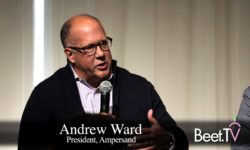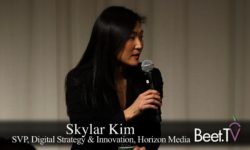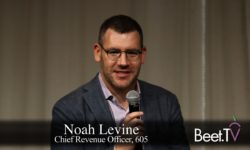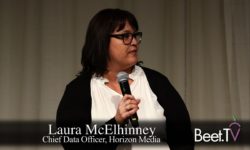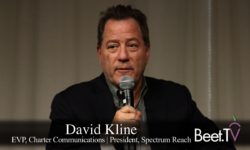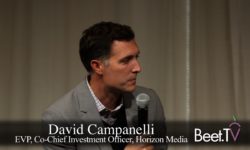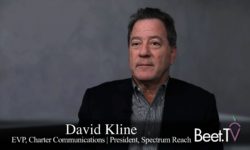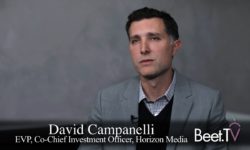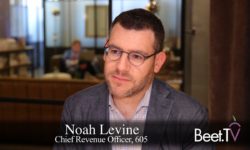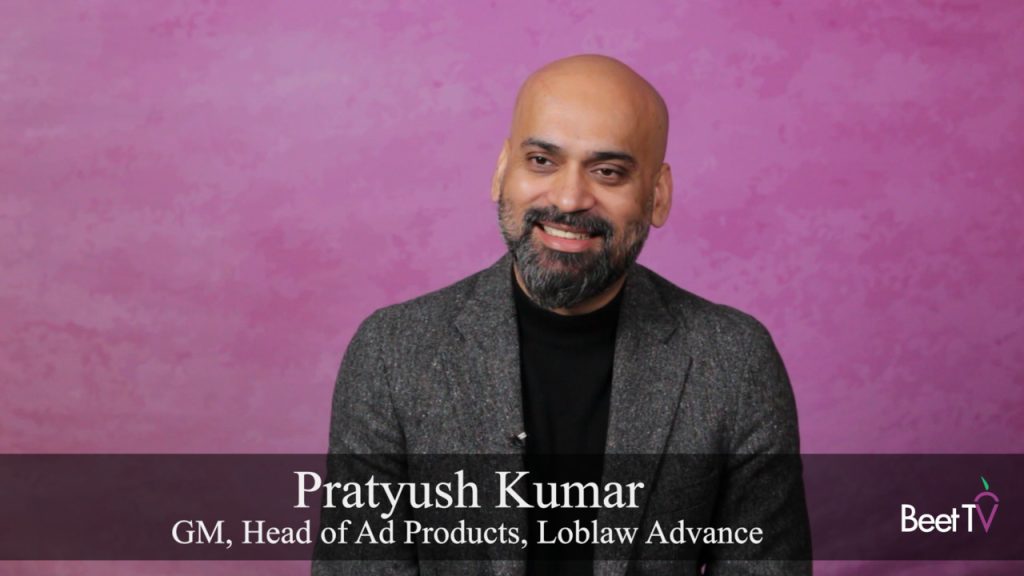Connected TV devices are getting lit up with the new ability for advertisers to draw a straight line between ads shown to viewers and actions those viewers take as a result.
It is the new practice of attribution, and technology vendors like TVSquared are busy helping broadcasters prove to advertisers how an ad exposure can correlate in to a website visit, a drop-in to a store or even a purchase.
But, in this panel discussion with Beet.TV, one executive says “attribution” technology doesn’t only prove specific outcomes like that – it can also evidence the traditional metric of brand uplift.
Attribution is “being able to measure very specific outcomes, return on ad spend, actual conversions, mid-level activities, whether that is site traffic, foot traffic in the real world, but also to be able to measure the impact of what advertising does to the brand, what is the lift that it has on the brand”, says 605’s chief revenue officer Noah Levine.
Beyond outcomes
But Levine says the same technology can be used for something more.
He says: “There is the lifetime value of a maybe a six-year-old who … sees a luxury car ad … that (ad) impression has an impact on that six-year-old to aspire potentially to something later in life saying, ‘Hey, I want this BMW. I want this Mercedes,’ et cetera.
“That’s something that, particularly with deterministic television and where we’re going with television measurement, we’re more and more able to do this.”
Measuring brand-level outcomes
Brand uplift is the ill-defined and hard-to-discover outcome that advertisers have traditionally fallen back on seeking, given TV’s historic inability to measure specific audience behaviors.
Now TVs are gaining the ability to observe specific content and advertising viewing, whilst software platforms can link those profiles to consequential online actions. So, how would Levine use it to measure brand uplift?
He says his company’s technology enables “full-funnel” attribution, meaning it encompasses brand uplift, too.
“The way that you measure the impact on the brand is a qualitative exercise. And the nature of it being qualitative allows for it to be unique in every single application,” he says.
“Different brands will ask different questions in surveys that are delivered in different and through different modalities, digital, telephone calls, mail, and so forth.
“We’re moving away from the one size fits all currency and we’re moving towards providing the data, and technology, and solutions to be able to allow each agency, each buyer, each brand to come up with the way that they want to transact and measure, and the same thing on the sales side.”
Levine was interviewed by Furious Corp CEO Ashley J. Swartz.
Beet Retreat In The City @ Horizon Media is presented by 605 and Spectrum Reach. For more videos from the event, please visit this page.







